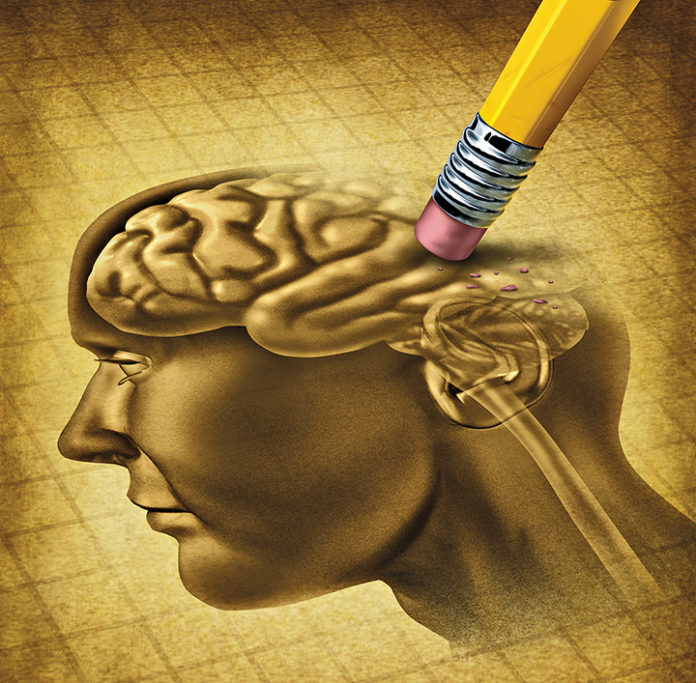By Lisa Levin
Many family caregivers support someone with a visible health challenge –such as frailty, or developmental and/or physical disabilities. However, many illnesses can be hard to detect with the naked eye – and that makes getting support even more challenging. This is the case for many of the 500,000 Ontarians who suffer from an acquired brain injury (ABI). It is common for those with an ABI to have difficulty obtaining a diagnosis. These individuals often fall through the cracks since health and community care agencies usually require proof of injury and a documented health condition as a requirement for service provision.
Caregiving for someone with an ABI requires great stamina since most brain injuries are lifelong conditions. Layered on top of this, 86 per cent of those with an ABI cannot return to work post- injury and their caregivers become the family’s sole income earner. It is no wonder that these family caregivers have a high rate of burn out and illness.
That is what happened to Candice* whose husband Paul* was in a motor vehicle accident. It took Paul many years to realize he had sustained a brain injury. As a result, he was not able to access any benefits through his automobile insurance. Eventually Paul had to stop working – he became very anxious, socially inappropriate, and had significant issues with mental health, processing, memory and executive functioning skills. He experienced separation anxiety and needed to be with Candace at all times. Candace had to help Paul with his personal care and food preparation. She became the sole income earner, caring for Paul around the clock and advocating for his service provision. Due to the absence of a diagnosis, Candice was only able to obtain a few hours of home and community support for Paul. Paul was eventually admitted to a hospital for serious mental health issues. Candice developed cancer, possibly brought on by the stress of her caregiving role. Despite her own illness, Candace continues to be the case manager and system navigator for both herself and Paul. There is no one to care for Candace.
An ABI can result in behaviours that are a major challenge for family caregivers. Brian’s* wife Nina* suffered a significant brain injury when she was in a motor vehicle accident in the late 1990’s. This left Nina with executive functioning deficits such as impulsivity and aggression. She has no insight into her injury and feels that nothing is wrong. Nina requires full time care, so Brian had to quit his job. Nina is paranoid, and when Brian talks on the phone she screams and yells at him for cheating on her and lying. If they go out together to a restaurant Nina will accuse Paul of flirting with the waitress or other women in the restaurant. Not surprisingly, Brian has become a prisoner in his own home and is increasingly isolated from his friends and family. While there are support groups available for Brian, Nina becomes upset if he leaves the house and will obsessively call and text him. Despite her injury, Nina still has capacity, and can make her own choices about medical and financial matters. She has chosen to cut Brian out of her medical decisions and is refusing to take her medications.
Family caregivers often find that their loved ones with an ABI have poor judgement, and this may result in inappropriate and/or risky decisions. However the threshold to remove someone’s capacity for financial and medical decision-making is high. It is also important to consider for individuals to maintain control and independence whenever possible. This is a significant issue for Rebecca*, whose father Steven* has an ABI. He still has capacity to make his own decisions, however his decisions often do not appear to be in his best interest. Rebecca struggles with how to help Steven when he does not want her help. Steven lives in and out of homeless shelters, drives his electric bike on highways, and does not maintain good personal hygiene or nutrition. Rebecca has serious concerns that her father is at high risk of death or further disability, however she is powerless and cannot intervene.
While each ABI is different, it is clear that caregivers of those with an ABI share an often lifelong responsibility that is complex and challenging.
If you or someone you know has an Acquired Brain Injury, or is a caregiver for someone with an ABI, there are few specialized resources. The best place to go is the Ontario Brain Injury Association (OBIA)
Their toll free support line is 1-800-263-5404
OBIA offers a peer support program, online bookstore for literature about ABI, and training programs. They can be reached toll free at 1-855-642-8877
There are 21 local associations across the province that offers a wide range of support groups . https://obia.ca/abi-associations/
*Names have been changed
Lisa Levin is Chair of the Ontario Caregiver Coalition and is also the Principal Consultant for Lisa Levin and Associates where she provides services including strategic planning, marketing and communications and accreditation project management. She also provides Care Management services to help families navigate the home and community care system. She can be reached at info@lisalevinandassoc.com


